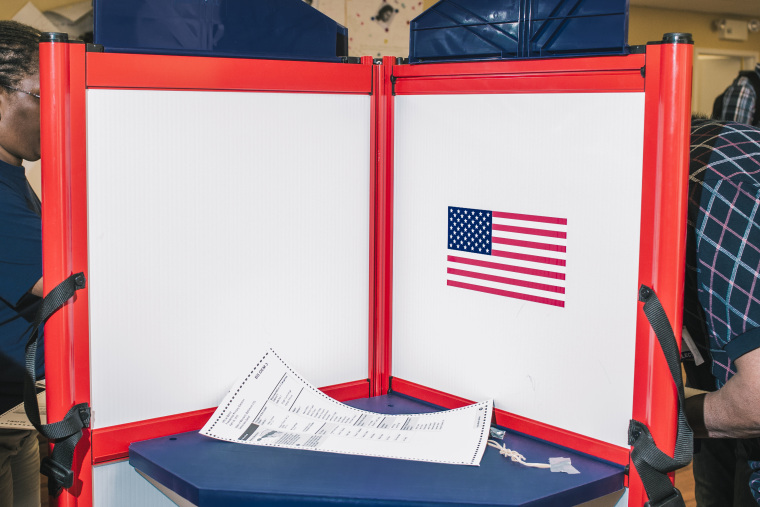As recently as early 2015, a grant total of zero states had automatic voter registration. As of yesterday, however, AVR is now the law in nine states.
Gov. Gina Raimondo has signed a bill that allows qualified voters to automatically register.The new law would provide automatic voter registration for eligible citizens when they're obtaining or renewing a driver's license, unless the person chooses to opt out.... The bill passed last month in the House and Senate and had bipartisan support. Rhode Island becomes the ninth state to put in place automatic voter registration.
Illinois appears likely to become the 10th state to adopt the policy, with the legislature already having approved AVR and Gov. Bruce Rauner (R) is expected to sign it. What's more, the issue will be on the statewide ballot in Nevada next year, and the consensus is it's likely to pass.
Circling back to our previous coverage, this is a policy that's tough to argue against. When it comes to registering to vote in the United States, the burden has traditionally been on the individual: if you’re eligible to vote, it’s up to you to take the proactive steps needed to register.
Automatic voter registration, which already exists in many of the world's democracies, flips that model. The idea is exactly what it sounds like: states would automatically register eligible voters, shifting the burden away from the individual. Those who want to withdraw from the system can do so voluntarily without penalty, but otherwise, Americans would be added to the voters rolls automatically.
At the federal level, Rep. David Cicilline (D-R.I.) has taken the lead on sponsoring a national AVR bill, and his proposal has 108 co-sponsors. At this point, however, literally all 108 are Democrats. In a House led by a far-right Republican majority, the bill has no realistic chance of getting a vote, at least in this Congress.
That said, the scale of the Democratic supports suggests the next time control of Capitol Hill changes hands, we may see some real movement on this.
